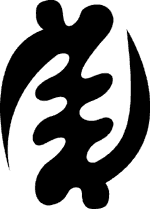Anyway, I was just trying to find some other translations and actually found some great insights to the same/similar ideas to what I'm trying to point out on this thread.
So, enjoy these posts by 'Audi' -
5. "Use Yi, do not use Li, 用意不用力": Despite what may appear from Yang Chengfu's explanation, I think that too much emphasis is often given to Li, Yi, and Jin as theoretical concepts. I think what is meant is simply that we should pay attention to how we use our muscles rather than to how much. If we put our minds on the right things, natural processes will give us the power we want. If we concentrate on simply using more muscular power to achieve our ends directly, we will actually block those processes from achieving the result we want. It is more about training method than about the level of muscular exertion.
Take care,
Audi
******
"5- You are right in the sense that we should not go so much deep into the abstract about these concepts."
My point was not so much that we should not go into the abstract, but that the abstract should be linked as closely as possible to the concrete. As I mentioned, my understanding of Persian is nearly nonexistent, but when I look at your translation and make an educated guess as to the meaning and structure, it is not clear to me that you used any Persian equivalent of 力 Li4 or 意 Yi4, but just transliterated them. This was not done in the English versions you used. By making this choice as a translator, I just wonder whether it overemphasize these terms as mysterious, foreign concepts, instead of things that we encounter every day all day.
Take care,
Audi
*****
You have well pointed out what I have done in translating "Yong Yi Bu Yong Li". I have not translated the two words "Yi" and "Li". I had several reasons to do so and I have done this only in this one among the Ten Essentials. I think some words should not be translated and the same Chinese word should be used. I have done this for other words like "Shen" or "Jing Shen" and some others. The most important reason is that sometimes the equivalents of these kind of words in the second language (here Persian) have a long history and there are so many stories attached to them. As soon as you use them in translation the mind of the reader associates the meaning with these stories and this is where the problem occurs. The original intention of the Chinese word might not be associated with these concepts and stories. This is rooted in cultural background of each language and the history, beliefs and experiences of the people of that country. So I believe in these cases it is better to leave it as it is and try to convey the meaning by explaining the word. I should add that this problem is only related to "Yi". However I did the same for "Li" with the intention of highlighting the Jin and Li continuum, to draw the attentions to the fact that force in Taijiquan is more refined that normal force and strength we experience. I would like to know your opinion about this issue.
Best Regards,
Meghdad
*****
Hi Meghdad,
What we are discussing is a problem inherent to all translations. Often what we must do is choose the least bad option rather than the best option. I cannot tell you what is best in English, let alone in Persian. I just want to be clear about some of the implications.
In English, I do not particular like the word "intent" as a translation for Yì 意. In my internal dialog with myself, I prefer the verb "to mean." In other words, I ask myself what do I mean by positioning my limbs a certain way or what is my purpose in doing it precisely in that manner. According to my understanding, at the middle level of trying to "understand energy" (懂劲), we should move with conscious awareness, and so every part of our body should have meaningful movement. I would think that there would be some way to express this in Persian without triggering too many other associations. Perhaps you need a phrase or a change in the part of speech. For instance, I like talking to my students about what they mean be bending their elbows in a particular fashion, but not about the "meaning" of doing so, even though Yì 意 can range as far as having that significance.
In English, I am more or less happy with rendering "Lì" as "strength" and "Jìn" as "power" or "energy." Grand Master Yang Zhenduo, for instance, has talked about "Jìn" as being simply "trained 'Lì.'" What we train, however, is more than just "Jìn" or "power," since we stress training from inside to outside. What we train most is "Nèi Jìn" or "internal power," rather than "Wài Jìn or "external power." We often use the term "Jìn" as shorthand for "Nèi Jìn," but I think it is good to maintain the distinction. Typically, Master Yang Jun uses the word "energy" when he talks about "(Nèi) Jìn," but I do not think he is trying to set up an English definition.
I think I lost the equivalent of 2-3 years worth of training by thinking of many of the Chinese terms as only philosophical terms, rather than concrete ones. One of the things that initially impressed my most about the Yangs was how practical they seemed. Because of my experience, I tend to favor translations that are as simple and direct as possible. Others, with a different background, might go the other way.
I hope this helps.
Take care,
Audi
.






